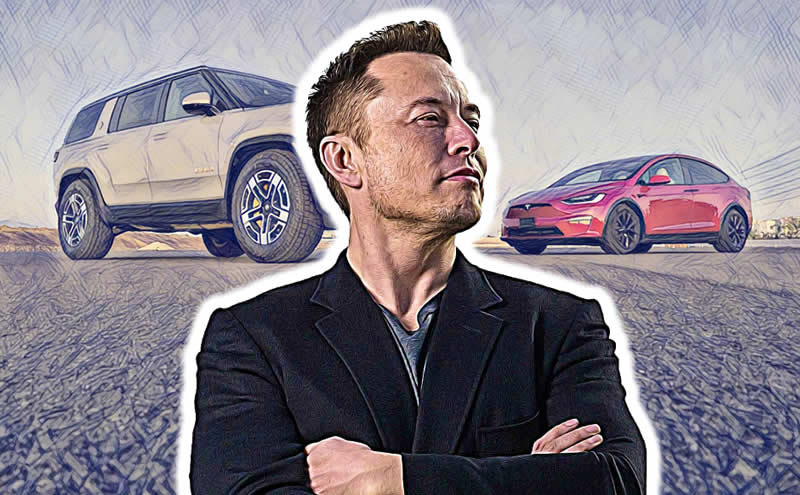Rivian Automotive, Inc. (NASDAQ: RIVN) is a manufacturer of electric vehicles (EVs) that was established in 2009 by R. J. Scaringe, a young entrepreneur and engineer. The company designs, develop, and manufactures electric vehicles and associated accessories. It engages in the business of selling automobiles to individual customers in the consumer as well as commercial markets.
The 2023 Rivian R1T electric pickup Truck is the company's newest and most advanced product. Rivian's primary rival in the electric vehicle (EV) market is Tesla, whose stock ticker symbol is TSLA. Tesla (NASDAQ: TSLA) is unquestionably the most successful electric car company in market cap and sales.
A good number of people think Rivian would be the next big EV company. While I share a similar sentiment about the nature of the business, I do not see them overtaking Tesla in the EV space. Here are my reasons.
1. Failed Truck Deal with Mercedes
Rivian and Mercedes-Benz signed a memorandum of understanding and a partnership agreement on September 8th, 2022, to establish a joint venture to manufacture large commercial electric vans. According to what was stated, the two companies plan was to produce two large vans, one of which will be based on Mercedes engineering, and the other will be based on Rivian's Light Van, which is the company's second-generation electric van. Investors were taken aback by the failure of the truck deal because it would have resulted in fierce competition between Rivian and Tesla in the stock market. If Rivian (NASDAQ: RIVN) is serious about becoming bigger than Tesla, it need not continue to cancel great deals, especially with top companies like Mercedes.
This year and particularly in the third quarter, Rivian has experienced losses. According to the report for the third quarter obtained through CNBC, Rivian incurred a net loss of $1.72 billion in 2022, an increase from the net loss of $1.23 billion in the third quarter of 2021. Despite suffering a significant cash loss of over $1.6 billion during the third quarter, Rivian ended the period with a sufficient $13.8 billion in available cash. Rivian's share price has also dropped significantly over the past few months. Therefore, Rivian has not been successful in persuading investors that it can effectively compete against larger automobile manufacturers like Tesla in the electric vehicle (EV) space since the announcement of the failed truck deal.
2. Lower Market Dominance
According to reports and figures obtained from first, second, and third-quarter results, Telsa continues to dominate the Electric vehicle (EV) market. As obtained by Forbes, In the first quarter of 2022, Tesla sold approximately 564,000 cars, while Rivian delivered 1,227 vehicles in the first quarter.
During the second quarter of 2022, Telsa (NASDAQ: TSLA) sold more than 254,000 vehicles. In contrast, Rivian sold about 4,467 Units in the second quarter.
The third quarter sales report 2022 from Rivian showed that they produced 7,363 Electric vehicles and delivered 6,584, while Telsa disclosed it produced a total of 365,923 vehicles in the third quarter of 2022, delivering 343,830 vehicles.
Rivian (NASDAQ: RIVN) production and sales as of the third quarter of 2022 show that they produced about 14,317 vehicles and delivered 12,278. The total number of electric vehicles sold by Rivian in 2022 is less than half of the electric vehicles sold by Telsa in the first quarter. This shows Telsa's wide dominance in the EV space. Rivian is not expected to compete with Telsa.
Until Rivian shows a sign that it's ready to rival Tesla (NASDAQ: TSLA) in the EV space, we'll save our investment funds for buying Tesla.

















Rate this article